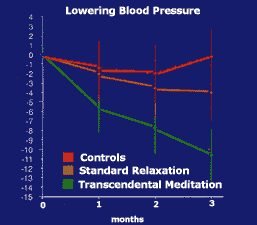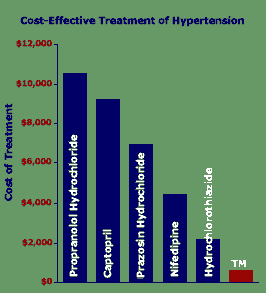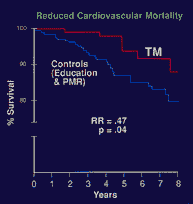
For further information, contact
Institute of Science,
Technology and
Public Policy
1000 North 4th Street
Fairfield, IA 52557
Phone 641-472-1200
Fax 641-472-1165
Email istpp@mum.edu
Website www.istpp.org
|
THE CONGRESSIONAL PREVENTION COALITION
The Congressional Prevention Coalition serves as a forum for education and discussion on the effectiveness and cost effectiveness of preventive approaches in health, social and economy policy. This new, active Coalition communicates to the Congress science-based information about prevention-related initiatives in social and economic policy and focuses on ways to integrate disease prevention and health promotion in our health care system.
The Congressional Prevention Coalition on Health Care for Minority Populations: Prevention of Hypertension and Heart Disease, on June 3, 1999 was co-sponsored by Senators John Chafee and Bob Graham, and Representatives Jim Leach and Jim Moran and the Institute of Science, Technology and Public Policy.
PRESENTATIONS
Moderator: John Hagelin, Ph.D., Director, Institute of Science, Technology and Public Policy
David Satcher, M.D., Surgeon General of the United States and Assistant Secretary of Health: Eliminating Racial and Ethnic Disparities in Health: The Surgeon General's Priorities
Keith Norris, M.D., Professor and Acting Chair, Department of Internal Medicine Charles R. Drew University of Medicine and Science: Stress, Hypertension and Heart Disease in African Americans
Robert Schneider, M.D., Dean, College of Maharishi Vedic Medicine Principal Investigator on NIH-funded study:
- Stress Reduction in the Prevention and Treatment of Cardiovascular Disease in High Risk Minority Populations.
PREVENTION OF HYPERTENSION AND
HEART DISEASE IN AFRICAN AMERICANS
|

In NIH-funded, randomized clinical trials, stress-reducing meditation was 2 1/2 times more effective in reducing systolic and diastolic blood pressure than conventional relaxatation. Effects were comparable to standard pharmacological treatment, but without the adverse side-effects or high cost of hypertensive drugs. R.H. Schneider et al., Hypertension 26 (1995) 820-827 and 28 (1996) 228-248.

As an approach to reducing cardiovascular morbidity and mortality, antihypertensive medication is costly, has adverse side effects, and has questionable value in decreasing coronary heart disease. Randomized studies indicate that stress-reducing meditation decreases hypertension as effectively as drug therapies without harmful side effects. This economic comparison of five standard antihypertensive drugs and stress reduction over 20 years of treatment shows that Transcendental Meditation (TM) is the most cost-effective option. R.E. Herron et al., American Journal of Managed Care 2 (1996) 427-437.

Cardiovascular disease mortality was significantly lower for the stress reduction (TM) group compared with the combined control group consisting of subjects who were given education and progressive muscle relaxation (PMR). V.A. Barnes et al., Proceedings of the 11th International Interdisciplinary Conference on Hypertension in Blacks, New Orleans, LA, 1996.
|
 |
The Need
Heart disease is Americas No. 1 killer. African American men and women endure disproportionately high rates of cardiovascular disease (CVD). Deaths from heart disease are 2/3 higher for African American women and 1/3 higher for African American men than for whites. Excessive rates of hypertension, psychosocial and socio-environmental stress contribute to high CVD morbidity and mortality in this population.
The Research
Within the last ten years, scientific research has clearly demonstrated the effectiveness and cost-effectiveness of certain behavioral modification and stress-reduction therapies in the treatment of hypertension and prevention of CVD deaths among African Americans.
According to research, heart disease and its primary risk factor, hypertension, can be prevented and even reversed through scientifically proven methods of stress reduction and lifestyle modification among African Americans.
The Savings
Over 50% of Medicare subscribers suffer from heart disease or hypertension, accounting for over $100 billion annually in Medicare expenditures. Clinical studies show that certain lifestyle modification and stress-reduction therapies are highly cost-effective compared to conventional pharmacologic or surgical treatments for cardiovascular disease.
- Cardiovascular disease is responsible for almost half of all deaths and is a significant source of health care expenditures.
- Deaths from heart disease are 2/3 higher for African American women and 1/3 higher for African American men than for whites.
- Hypertension among African Americans is 50% more prevalent than among whites. Hypertension in African Americans:
- is often under-diagnosed
- occurs earlier in life
- goes untreated longer
- rises more rapidly with age
- causes greater end-organ damage than in whites
- is more severe
- NIH-sponsored research links this excess prevalence and severity of hypertension among African Americans to "chronic and disproportionately intense societal stress, especially among low-income inner-city residents.
Heart disease is a largely preventable disease
Heart disease and its primary risk factor, hypertension, can be effectively controlled through lifestyle modification and scientifically proven methods of stress reduction.
|
|


